Compiled by: Deng Tong, Golden Finance
The Bitcoin 2025 Conference kicked off in Las Vegas on May 27th local time. What messages did industry insiders convey? What speeches by bigwigs are worth paying attention to? Golden Finance compiled the content of the conference for readers.
Donald Trump Jr.: Family interest in cryptocurrency comes from "need"
The eldest son of US President Donald Trump said that his family's interest in cryptocurrency was "a product of need" at least at the beginning. During Trump's first presidency, the Trump family and its organization experienced a large-scale wave of de-banking.
Donald Trump Jr. was not an early adopter of Bitcoin, but turned to blockchain technology only after realizing the "fragility" of the traditional financial system.
Donald Trump Jr. was not an early adopter of Bitcoin, but turned to blockchain technology only after realizing the "fragility" of the traditional financial system.
“We’re in real estate, we’re in hard assets, we build buildings — (Bitcoin) was kind of obscure at the time,” he said. “But once we got into politics … we were ripped off by the banking system, we were ripped off by the insurance system, we were ripped off by everything. It was brutal.”
Donald Jr. and Eric “definitely” played a role in helping their father, who called Bitcoin a scam in 2021, understand the potential of cryptocurrency and blockchain technology. “We’re the ones who were subpoenaed into those ridiculous lawsuits, we’re the ones who had their bank accounts seized … we’re probably the ones who have been through it firsthand,”
After Trump embraced cryptocurrency during the campaign, other candidates, including Democratic nominee and former Vice President Kamala Harris, jumped on the Bitcoin bandwagon, much to his laughter. “I would pay, a lot of money, even my entire cryptocurrency wallet, to have Kamala Harris explain blockchain technology,” Donald Jr. said. “That would be the best Kamala Harris rant ever.”
Donald Jr. added that his father “cared about doing the right thing for America” and saiddemocratizing finance “is the foundational principle of what he wants to achieve in this administration, after world peace.”“I think Bitcoin is in a perfect storm, as people say, to go to the moon,” he said.
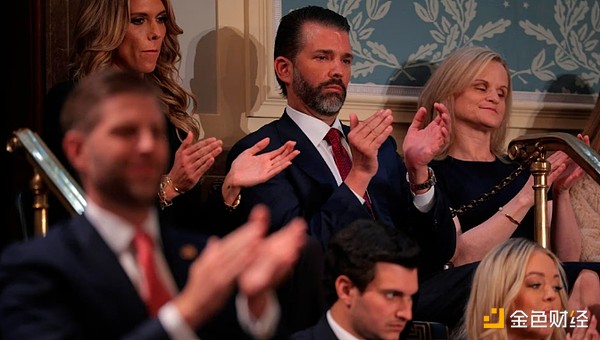
U.S. Senator Cynthia Lummis and Coinbase Chief Legal Officer Paul Grewal discussed issues such as the Market Structure Act, the Stablecoin Act, the future tax system, Bitcoin strategic reserves, and Bitcoin mining.
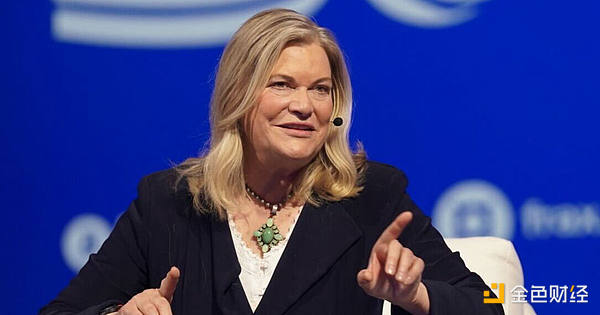
Wyoming Senator Loomis: What is the biggest problem for lawmakers in digital assets?
Loomis first commented on the market structure bill and the stablecoin bill.
"For many people in this meeting, the market structure bill may be more important than the stablecoin bill because there are many businesses involved, including you. Some businesses serve people who buy and hold Bitcoin, so they need custody services; some companies provide Bitcoin lending services; there is also a Bitcoin futures market, and Bitcoin can be connected to legal currencies such as the US dollar in many ways."
Loomis also mentioned the tax system she wants to implement and the documents her office submitted to the Finance Committee.
“With the growth of the Lightning Network, companies like Strike have become somewhat of a leader in the space. Creating an opportunity to do everyday transactions with Bitcoin. Everything from buying a cup of coffee to going out for dinner. It would be very beneficial if certain transactions under $600 per transaction were not taxed.”
In her presentation, she detailed one of the biggest issues lawmakers face when it comes to digital assets.
“A lot of the problem over the last four years has been that regulators have been very hostile to digital assets, so we’re trying to change that as quickly as possible. It’s not something that’s going to happen overnight. We don’t even have an IRS commissioner yet, so it’s going to be hard to get the IRS rulemakers to enact these structural changes when the IRS committee isn’t even in place.”
At the end of the panel, Loomis touched on one of the biggest reasons why the U.S. government should get involved in Bitcoin.
We are $37 trillion in debt and if we bought and held 1 million bitcoins for 20 years, we would cut that debt in half and we would have some underperforming assets that we could convert into bitcoins without having to borrow additional money. Bitcoin is a very important global strategic asset, not only economically, but also in our global defense because our defense has multiple components. One is having a lethal fighting machine that can defeat other armies and military forces. The other is having an economic machine that can defeat other currencies. She continued: "Even our military generals believe that Bitcoin is an important deterrent to contain other countries."
VanEck Digital Asset Director Siegel: Establishing a permanent strategic Bitcoin reserve may require targeted legislation
Matthew Sigel, head of digital assets at VanEck, said that Establishing a permanent U.S. strategic Bitcoin reserve may require targeted legislation rather than executive action. Siegel said at the Bitcoin 2025 conference in Las Vegas that the most feasible option may be to include Bitcoin mining incentives in the congressional budget reconciliation process.
Siegel believes that the most effective way to increase the United States' strategic bitcoin reserves is through targeted changes to congressional budget legislation. These measures could include tax credits for mining companies that use methane gas and other incentives designed to encourage miners to share a portion of their mined bitcoins with the federal government. He believes this approach would allow the reserve to grow organically over time. Siegel also highlighted the limitations of executive action in achieving that goal: "The problem with executive action is that it invites litigation. Anything over $100 million is going to be sued by people like Elizabeth Warren. So, I suggest starting with $100 million from the Exchange Stabilization Fund." From left to right: Alex Thorn, Matthew Sigel, Matthew Pines and Fred Thiel.
In the roundtable forum on "Building America's Future Financial Products", industry insiders expressed their opinions:

Bitwise Asset Management CEO Hunter Horsley: A new chapter will begin in 2025
Bitwise Asset Management CEO Hunter Horsley pointed out that with the changes in the regulatory environment, we will open a new chapter in 2025. "In the United States, wealth management firms manage $30 to $60 trillion in assets," If wealth management firms can eventually allocate 1% of their funds to this area on behalf of their clients, it will help them seize hundreds of billions of dollars in opportunities. ”
"Corporate is buying Bitcoin." "This is an extraordinary theme this year. As of the first quarter of this year, 79 public companies have included Bitcoin on their balance sheets. More than 600,000 Bitcoins, and the total amount of Bitcoin is only 21 million. This is a big number."
WBTC Advisor Justin Sun: Integrate BTC into DeFi
Justin Sun emphasized the importance of integrating Bitcoin into decentralized finance (DeFi) platforms: "Raw Bitcoin is a way to connect Bitcoin to smart contract platforms," "You can use your Bitcoin as collateral to borrow tokens of other mainstream cryptocurrencies just like borrowing stablecoins. Of course, the Bitcoin you hold can also generate income because Bitcoin is a network proof. ""Any transaction you see on the blockchain, as well as all reserve addresses, can be found on the blockchain. It is secure, transparent, and smart at the same time." "The progress we are making in the United States is critical because we are all further encouraging people around the world to join the Bitcoin industry." "Once Bitcoin passes this stage and gains institutional adoption in the United States, it will accelerate the application of Bitcoin worldwide."
BitGo CEO Mike Belshe: The success of stablecoins lies in liquidity
Mike Belshe elaborated on the basic elements for the success of stablecoins, especially in the context of Bitcoin applications."Whether you are referring to the US dollar or Bitcoin, the key to a good stablecoin is the liquidity it has in the global market. ”
In a panel discussion titled “America’s Next Golden Age” moderated by Grant McCarthy, co-chair of the Bitcoin Policy Institute, guests focused on the policy shift towards digital assets in the United States.

U.S. Congressman Byron Donalds: Bitcoin is a value holder outside of legal tender and central banks
Donalds pointed out: “What the president and his team are doing is choosing to enter the digital asset market,”Bitcoin is a critical asset because it has proven to be a holder of value outside of fiat currencies and central banks. President Trump is taking the long view - strategically recognizing the role of Bitcoin in the national reserve.
"If you talk to any business owner in the world, what they crave most is certainty and consistency." This is exactly what will make Bitcoin a trillion dollar industry in the United States, rather than one that is plagued by regulatory ambiguity and legal costs."There will only ever be 21 million Bitcoins. Central banks cannot reduce that number. In my opinion, it is critical for the United States to establish a strategic reserve of Bitcoin. ”
Brian Steele: Trump’s influence is the driver of legislative momentum
Brian Steele pointed out: Trump’s media influence and political influence are the drivers of recent legislative momentum.“What he did was to focus on these three bills...which gave us the ability to move forward.” He pointed out that legislation is difficult to pass, but with the support of the executive branch, we have new energy and opportunities to ultimately succeed.
“Under the Biden administration, policy is made through enforcement actions. Bitcoin is decentralized and should be treated as a commodity. ” Shilzad agrees, pushing for “regulatory therapy” to free up billions that remain marginalized.
Coinbase Chief Policy Officer Fayal Shilzad: Lawmakers Need to Support Innovation
Shilzad: “The tone at the top is exactly what Donald Trump has shown us… He wants a market structure. He wants a more strategic approach. ”Coinbase has seen the impact firsthand - Lawmakers now recognize the need to support innovation, not stifle it.
The United States is going all in on Bitcoin - and fast, White House Executive Director Bo Hines, U.S. Treasury's Tyler Williams and moderator Miles Jennings said in a roundtable titled "Making America the Global Bitcoin Superpower."
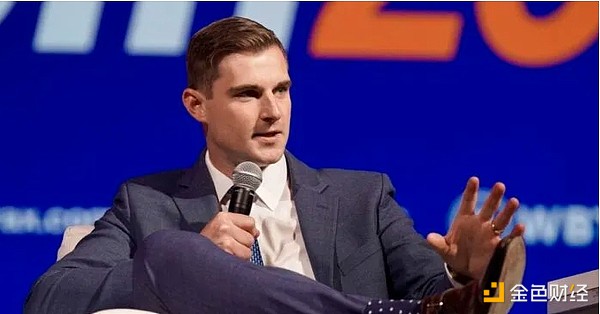
White House Executive Director Bo Hines: We Will Become a Bitcoin Superpower
White House Executive Director Bo Hines noted: "We are well on our way to becoming the bitcoin superpower of the world. This is not about partisanship, this is about a revolution in the financial system." "Updating the payment rails is necessary, and we are well on our way to doing that." Upcoming market structure legislation will clarify how intermediaries such as exchanges and brokers are regulated, and how digital assets are classified - whether they are securities or commodities. "We want people to innovate here, and we don't have to worry about them walking into the SEC and getting a Wells Act notice before they even get on the elevator." He added that US regulators are now encouraging cryptocurrency innovators to return: "We say to those who have left overseas: Welcome home." "Bitcoin is truly the gold standard... We should be leveraging this asset on behalf of the American people. We want to get as much access to it as possible." ”
Miles Jennings: The Bitcoin Act Will Play a Positive Role
Miles Jennings pointed out the key regulatory measures currently being implemented. "If this bill becomes law, which I hope it does, we will play a pretty positive role. The connection between the traditional financial system and Bitcoin, stablecoins, and everything else will really be paved by stablecoin legislation."
U.S. Treasury Department Tyler Williams: Any new laws must reflect the decentralized financial architecture
Williams emphasized: Any new laws must reflect the unique architecture of decentralized finance. "Traditional markets are based on a principal-agent model, but cryptocurrencies push us into a principal-to-principal structure. ”
Institutional Bitcoin adoption surged after regulators provided support for the ETP market - and believe the same will happen again with stablecoins and market structure legislation. “We are moving aggressively toward digital assets, and you will certainly see the United States become the world's Bitcoin superpower.
President Trump's 2024 campaign co-manager Chris LaCivita, Congressman Brian T. Jack, Coinbase Chief Policy Officer Faryar Shirzad, and former U.S. Treasury Secretary Rosie Rios discuss the 250th anniversary of the founding of the United States, Bitcoin, freedom, and cryptocurrency.
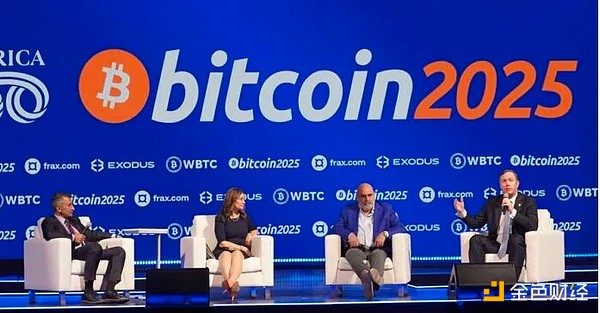
Former U.S. Treasury Secretary Rosie Rios: Bitcoin will continue to exist
Rosie Rios emphasized that it is difficult to change consumer behavior unless there is a shock to the existing system. In the past four months, she was amazed by the real implementation of innovation and the momentum of change. "You're going to hear me say a lot, the train has left the station. Bitcoin is here to stay. Blockchain is here to stay."
"The eyes of the world are on us, and we have a role to play in setting the tone not only for our history, but for the future. This is about the American Dream for all of us. This is about the values that our country was founded on."
"For Bitcoin and blockchain, whoever creates this dominant digital infrastructure will set the tone for the entire global financial system, and it all starts with this meeting, under the leadership of this president, moving forward."
Chris LaCivita: The United States is at the forefront of building and planning the future of money
Chris LaCivita, co-manager of President Trump's 2024 campaign, noted:
" 192);">“This is about freedom and what cryptocurrency represents at the national level,” “This country was built on the entrepreneurial spirit of the American people, and we are at the forefront of building and planning the future of money.”
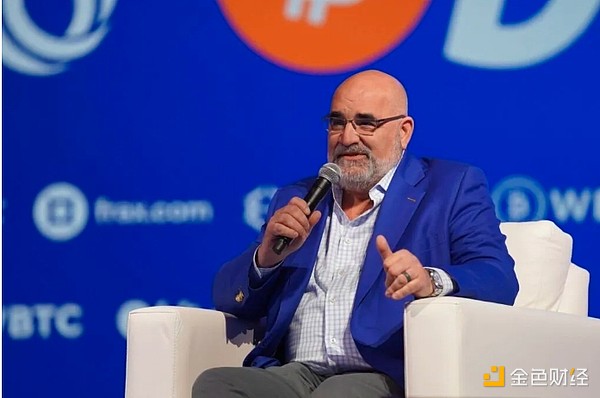
Congressman Brian T. Jack: Cryptocurrency payment processors will bear a heavy burden from the CFPB
Congressman Brian T. Jack mentioned that earlier this year, they began to use a congressional tool called the Congressional Review Act, which would enable them to repeal any regulation imposed by the Biden administration in any area in the final months of its term.
“One of the first laws that Donald Trump signed was to repeal an issue that was of great concern and interest to some of you in this room,” he said. “This policy was imposed on the industry by the Consumer Financial Protection Bureau (CFPB) last December, and it actually helped them regulate payment processors, or over-regulate payment processors. So a lot of payment processors that handle Bitcoin and cryptocurrencies are going to be burdened by the CFPB.”
Other notable sessions:
Nonprofit MACS Launched
Mothers Against Cruel Punishment (MACS), a nonprofit founded by Lyn Ulbricht, officially launched today at the Bitcoin 2025 conference with a strong statement against unjust sentencing. The organization is dedicated to advocating for prisoners who have been subjected to excessive and inhumane sentences and supporting families affected by such punishments.
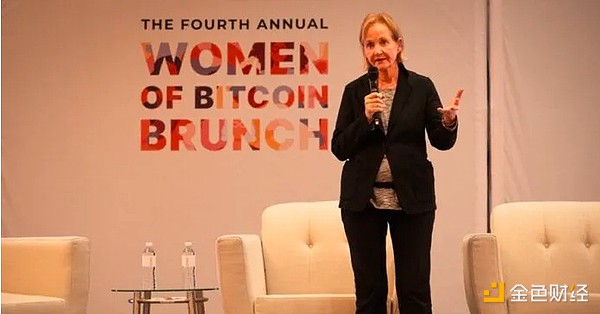
MACS is dedicated to bringing together voices from across the political spectrum and the tech community to promote meaningful reforms in sentencing laws.
"Thousands of people, many of whom, like Ross, are not violent offenders, are serving prison sentences - they are incarcerated for years, decades, or even their entire lives," said Ulbricht. “MACS is about giving families a voice and pushing for fair and reasonable sentencing, so that the punishment fits the crime.”
Ross Ulbricht’s Journey: From Life to Presidential Pardon
Ross Ulbricht founded Silk Road in 2011, an online marketplace that used Bitcoin for anonymous transactions, and has been the subject of controversy ever since. While the site was unfortunately used to sell illegal drugs, it also became the first real-world use case for Bitcoin, demonstrating the power of decentralized, censorship-resistant currency.
In 2015, Ulbricht was sentenced to double life in prison without the possibility of parole. His sentence quickly became a symbol of government overreach in the eyes of many in the tech and Bitcoin communities. Critics argued that his sentence went far beyond the boundaries of justice, especially given the non-violent nature of his crime.
Trump pardoned Ulbricht shortly after taking office, which was seen as a strong move to fulfill his campaign promises and support Bitcoin’s values of individual freedom and resistance to government overreach. This not only sparked cheers from the entire Bitcoin community, but also reminded advocates that the fight for justice is far from over.
The Bitcoin community continues to call for forgiveness and support for others, including Samourai Wallet developers who face prosecution for developing privacy tools, and Edward Snowden, who is in exile for exposing government surveillance programs.
What will happen after the Bitcoin 2025 conference?
Last July, the Bitcoin 2024 conference in Nashville, Tennessee, set the stage for the sudden drop in early August, causing BTC/USD to fall 30% from $70,000 to $49,000.
With the Bitcoin 2025 conference held as scheduled, will the crypto market repeat last year's trend?
Trading firm QCP Capital wrote: "The recent continued rise in volatility suggests that traders are preparing for major risks ahead of the Bitcoin Conference in Las Vegas from May 27 to 29. The lineup of speakers for the conference has gradually come into focus, including JD Vance, Michael Saylor, Donald Trump Jr. and Eric Trump."The Nashville Bitcoin Conference in July last year provides a useful reference. At that time, Bitcoin's one-day implied volatility soared to more than 90 when President Trump delivered a keynote speech, and then quickly reversed, with Bitcoin falling nearly 30% in two days. This event still affects market memory. Cryptocurrency trader, analyst and entrepreneur Michaël van de Poppe reiterated that BTC’s fall from $110,000 to around $70,000 happened once before. “Corrections do happen and they will continue to happen,” he said, arguing that a correction of up to 20% “should not put you off.”
Prominent trader Daan Crypto Trades is one of the traders who uses exchange order book liquidity to identify potential targets. “The longer the price lingers in this price zone, the denser the liquidity clusters above and below will become,” he concluded, based on data from monitoring resource CoinGlass. “There is a lot of liquidity gathering around the low $106,000 level, and quite a bit at $111,000 and above. Keep a close eye on when price hits these two areas, as these areas often act as magnets when prices get close.” center;">BTC liquidation heat map. Source: CoinGlass
More exciting content will be updated continuously...
 Jixu
Jixu















